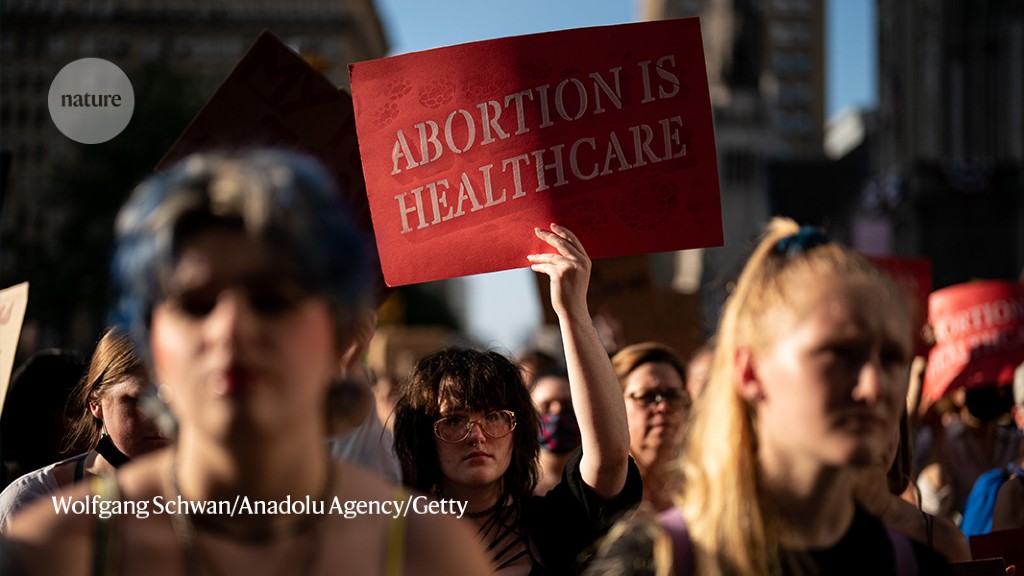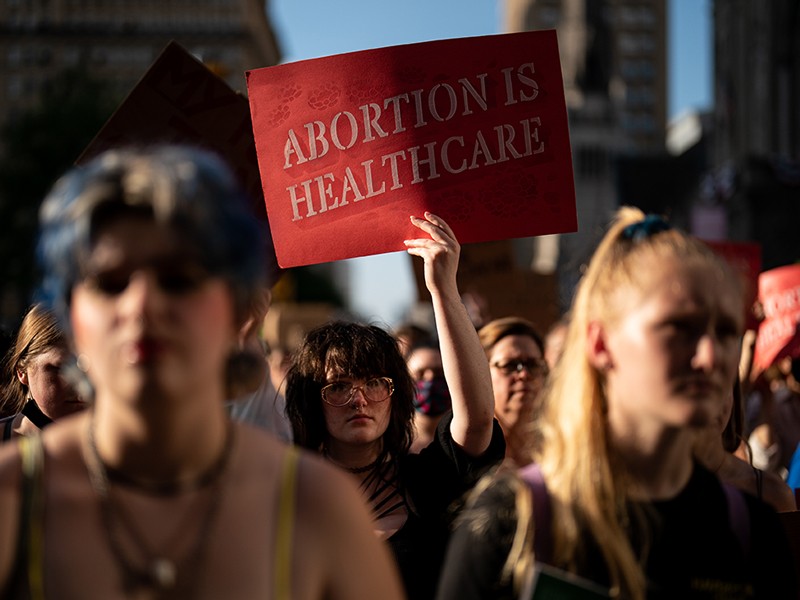Nearly 1,000 members of the American Geophysical Union (AGU) are asking the organization to relocate its 2025 Fall Meeting from New Orleans, Louisiana, to a site in a state that has no abortion bans or restrictions.
AGU member Claire Kouba launched a petition on 7 July, requesting the relocation on the grounds that the health and safety of pregnant attendees would otherwise be at risk. “This legal environment creates an immediate medical risk,” argues Kouba, who researches hydrological sciences at the University of California, Davis. By 6 September, the petition had gathered more than 800 signatures.
In June, the US Supreme Court overturned the landmark 1973 court decision Roe v. Wade, removing the constitutional right to abortion. Directly afterwards, 13 states, including Louisiana, activated ‘trigger laws’ automatically banning medically unnecessary abortions. Other states have also enacted bans, or severely restricted access to the procedure, and more are expected to follow suit. Many of these laws are now being tested in the courts.
The petition comes at a time when the AGU, based in Washington DC, is taking stock of how it chooses its conference venues. The society has about 60,000 members worldwide and hosts one of the largest scientific meetings in the United States, with some 25,000 attendees. It rotates its Fall Meeting venue between San Francisco, California; Washington DC; and Chicago, Illinois — in all of which abortion rights are largely protected — and New Orleans, where state law now bans many abortions.
‘Discriminatory environment’
The petition to the AGU notes that 28% of AGU members identify as female and that 48.5% are under the age of 45; given typical US pregnancy rates, the petition estimates, up to 420 attendees could be pregnant during the meeting. It notes that pregnant people who have an ectopic pregnancy, a septic uterus, an incomplete miscarriage or other complications face great health risks and might require emergency medical care. “Even though these are low-probability events, they are high impact, and they could happen to anyone with a uterus,” says Kouba. “It creates a discriminatory environment.”
Since Louisiana enacted its bans, which are among the strictest in the nation, doctors around the state have been hesitant to offer such care, and in some cases have been legally advised to avoid doing so.
Kouba also worries that emergency contraception, such as the ‘Plan B’ pill, might no longer be accessible in Louisiana by 2025. It is currently allowed, but some observers have suggested that state legislators might aim at this next.
Petitioners agree that the current ban means there is inadequate medical protection and a hostile environment for pregnant conference attendees. “We’re not proposing major science conferences in other places without good medical coverage, so why would we do it here?” says Karen MacClune, a hydrologist and climate-change scientist who is chief executive of ISET-International, a non-profit organization based in Boulder, Colorado. MacClune, who signed the petition, worries particularly about women being prevented from transferring out of state in the case of a pregnancy-related medical emergency.
Guidelines and priorities
Lauren Parr, AGU’s senior vice-president of meetings and learning, says that the association takes such issues seriously. “The first question we always ask ourselves is, ‘Can we keep you safe?’ And the second question that we always ask is, ‘Can we make you feel welcome?’” The AGU also considers accessibility issues, cost, walking distances, the local scientific community and the draw of the location. Across North America, only 15 cities can accommodate the vast numbers attending the AGU’s Fall Meeting, she says.
Parr says that the AGU is reassessing its guidelines and priorities about meeting venues and will discuss the issue at a board meeting in late September. In August, it hosted a Professional Convention Management Association round-table discussion with venue representatives and other science organizations. Those present talked about attendees’ comfort levels at conference venues where abortion rights, immigration policies and LGBT+ issues might be a concern.
Some AGU members were uneasy about New Orleans even before the overturn of Roe. Elizabeth Fischer, who studies glaciers at University of Alaska Fairbanks and identifies as LGBT+, says that she is deeply uncomfortable with the high murder rate in New Orleans, and will not attend any meetings there.
The American College of Obstetricians and Gynecologists in in Washington DC announced after Roe was overturned that it would relocate its April 2023 conference from New Orleans to Baltimore, Maryland. The AGU itself has moved at least one smaller meeting in the past. In 2018, it had planned a Geoscience & Society Summit in Bermuda with a focus on diversity and inclusion. Bermuda passed a law banning same-sex marriage, so the AGU relocated the summit to Stockholm.








More News
Quantum control of a cat qubit with bit-flip times exceeding ten seconds – Nature
Venus water loss is dominated by HCO+ dissociative recombination – Nature
Microbubble ultrasound maps hidden signs of heart disease